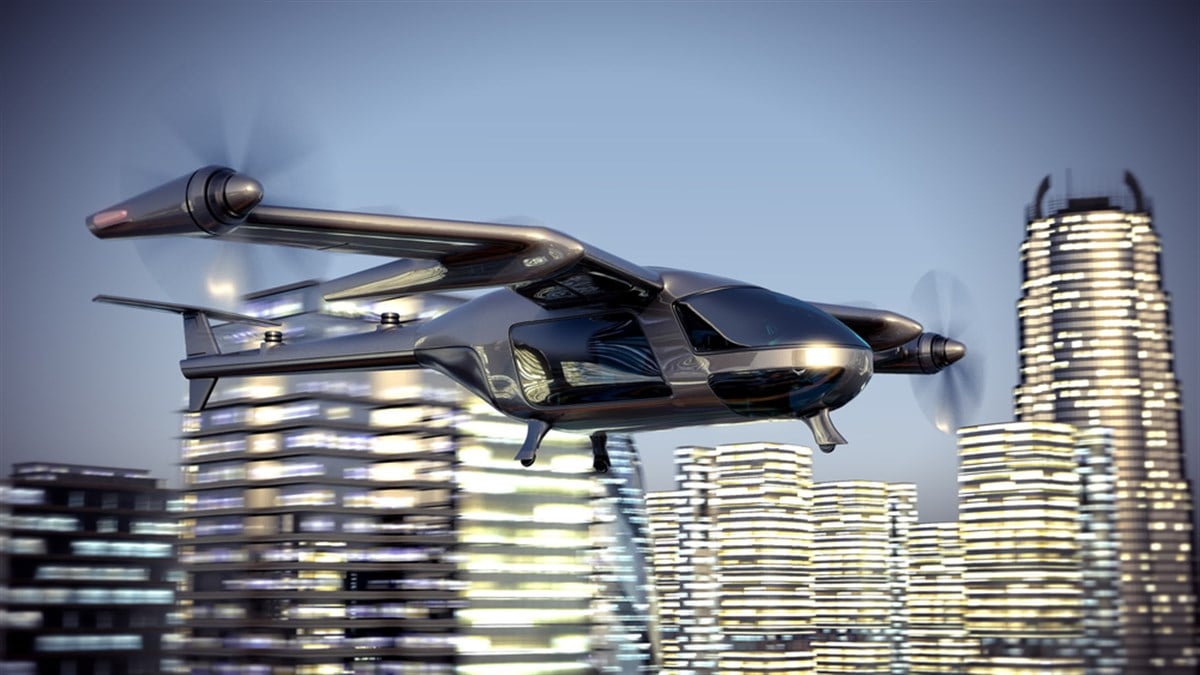
While the world focuses on autonomous vehicles, a quieter revolution is taking flight in the fledgling electric air taxi sector. This emerging sector offers a solution to traffic congestion and a cleaner, faster mode of transportation. The electric air taxi industry is attracting billions in investment and forging key partnerships with major players in the traditional airline industry. Investors seeking the next high-growth opportunity should look to the skies, where companies like Joby Aviation (NYSE: JOBY) and Archer Aviation (NYSE: ACHR) compete to dominate a market poised to transform the urban mobility and transportation sector.
Electric vertical take-off and landing aircraft, known as eVTOLs, have the potential to revolutionize transportation. These vehicles, quieter and more sustainable than helicopters, promise to dramatically reduce travel times, bypass gridlock, and connect communities in new ways. As regulatory frameworks take shape and the technology matures, the electric air taxi sector is rapidly approaching commercialization, creating a compelling investment opportunity for those willing to take the risk.
Joby Aviation: A Vertically-Integrated Vision
Joby Aviation is a leading contender in the electric air taxi race. The company is making significant progress, recently rolling out its third production prototype aircraft. Joby expects to have four aircraft in flight testing soon, showcasing its ability to scale manufacturing. The company is also on track for FAA certification, having completed over one-third of stage four in the process.
Joby's recent financial performance reflects its progress toward commercialization. Joby Aviation's earnings report for the second quarter of 2024 states that the company has $825 million in operating income and short-term investments, a solid foundation for its growth plans.
Joby Aviation's financials for the second quarter show a net loss of $123.3 million, a significant improvement from the $286.1 million net loss in the same period last year. This positive trend is partly attributed to the favorable revaluation of warrants and earn-out shares, indicating growing investor confidence.
Joby's strategy is centered on a vertically integrated business model. The company plans to own and operate its fleet, offering transportation as a service through a dedicated ride-hailing network. This approach grants Joby complete control over the customer experience and potential revenue streams but requires substantial upfront investment in building a comprehensive infrastructure.
Archer Aviation: The Power of Partnerships
Archer Aviation offers a different approach to the eVTOL market, emphasizing strategic partnerships. The company recently secured a contract manufacturing agreement with Stellantis (NYSE: STLA), valued at up to $400 million. This partnership provides Archer with significant financial backing and access to Stellantis' manufacturing expertise to scale production.
Archer is also partnering with established transportation providers like United Airlines (NASDAQ: UAL), aiming to integrate its aircraft into existing networks. This strategy leverages these partners' infrastructure and customer base, potentially accelerating Archer's path to market.
Archer's financials for the second quarter of 2024 illustrate its focus on managed growth. The company reported $121.2 million in total operating expenses and a net loss of $106.9 million for the quarter. However, Archer has strategically fortified its financial health by securing $230 million in additional funding since the end of Q2, bringing its cash reserves to $360.4 million. This funding, combined with the Stellantis partnership, gives Archer a substantial runway for executing its strategy.
Adding to its momentum, Archer unveiled plans for an air taxi network in Los Angeles, strategically timed ahead of major sporting events. This network will target high-demand urban areas with vertiports at key locations, including Los Angeles International Airport (LAX). Archer is also exploring partnerships with the Los Angeles Rams and Hollywood Park to establish exclusive vertiports, demonstrating its commitment to prime locations. Moreover, Archer successfully delivered its first Midnight series aircraft to the U.S. Air Force, meeting its contractual obligations and gaining valuable operational experience.
The Competitive Landscape: A Crowded Sky
The electric air taxi sector is competitive and becoming increasingly dynamic as numerous companies seek to capitalize on the growing market for urban air mobility solutions. EHang (NASDAQ: EH) is a publicly-traded company based in China that has established a strong presence in the Asian market. EHang focuses on autonomous aerial vehicles (AAVs). These autonomous aircraft are designed to transport passengers and cargo, eliminating the need for onboard pilots and potentially reducing operational costs. EHang's early entry into the AAV market and its strategic focus on key Asian cities have positioned the company as a significant player.
Volocopter, a privately held German company, is taking a different approach, concentrating on developing multicopter eVTOL aircraft. These aircraft utilize multiple rotors for vertical lift and are designed for passenger and cargo transportation. Meanwhile, Beta Technologies, a U.S.-based private company, is carving out a niche within the eVTOL market by focusing on longer-range electric aircraft designed for cargo and logistics applications. Recognizing the growing demand for efficient and sustainable cargo transport, Beta Technologies is developing aircraft with increased payload capacity and longer ranges, aiming to serve regional transportation networks and support logistics operations for industries with time-sensitive delivery requirements.
Risks to Consider: A Grounded Approach
Investing in any fledgling sector comes with inherent risks. Regulatory uncertainty around eVTOL certification and operation could impact timelines. The technology is complex, with potential challenges in battery performance, aircraft safety, and autonomous flight. Building the necessary infrastructure requires significant investment and coordination. Public acceptance is crucial, with safety, noise, and affordability being key concerns. Finally, intensifying competition could pressure pricing and profitability.
The Future Takes Flight
The electric air taxi market has the potential to revolutionize transportation. With their distinct strategies, Joby Aviation and Archer Aviation offer investors compelling opportunities. Joby's vertically integrated approach prioritizes control and recurring revenue, while Archer's partnership-driven model leverages existing infrastructure and expertise. While both companies are making significant progress and securing funding, investors should carefully weigh the risks and challenges associated with this new industry. The future of transportation is taking flight, and with a grounded understanding of the risks involved, investors can position themselves for potentially lucrative returns.




